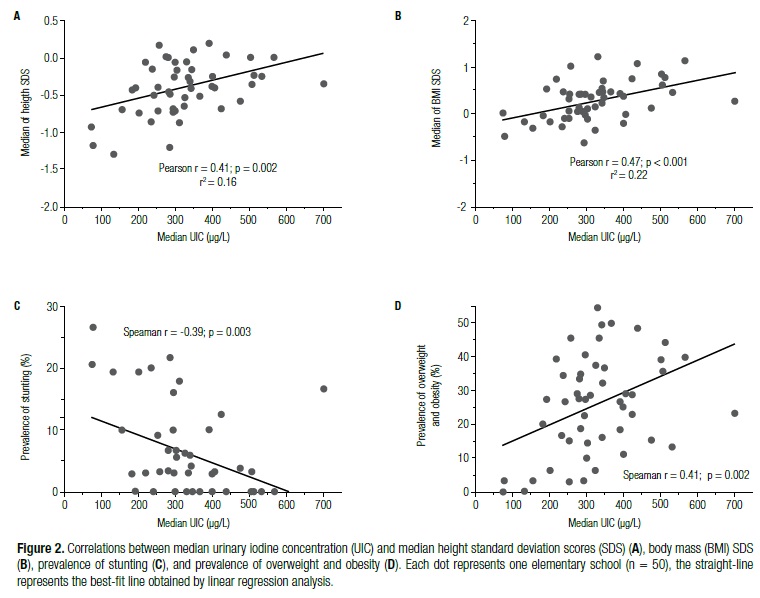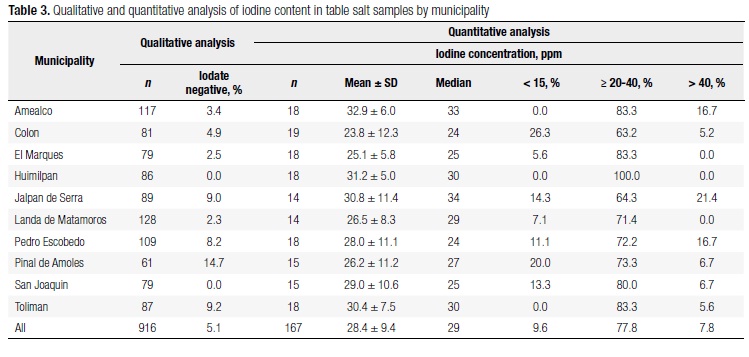OBJECTIVE AND METHODS: To estimate median urinary iodine concentration (UIC), and to correlate it with global nutrition indicators and social gap index (SGI) in 50 elementary state schools from 10 municipalities in the State of Queretaro, Mexico. RESULTS: 1,544 students were enrolled and an above of requirements of iodine intake was found (median UIC of 297 µg/L). Iodine status was found as deficient, adequate, more than adequate and excessive in 2, 4, 19 and 25 schools, respectively. Seventy seven percent of table salt samples showed adequate iodine content (20-40 ppm), while 9.6% of the samples had low iodine content (< 15 ppm). Medians of UIC per school were positively correlated with medians of body mass index (BMI) by using the standard deviation score (SDS) (r = 0.47; p < 0.005), height SDS (r = 0.41; p < 0.05), and overweight and obesity prevalence (r = 0.41; p < 0.05). Medians of UIC per school were negatively correlated with stunting prevalence (r = -0.39; p = 005) and social gap index (r = -0.36; p < 0.05). Best multiple regression models showed that BMI SDS and height were significantly related with UIC (p < 0.05). CONCLUSIONS: There is coexistence between the two extremes of iodine intake (insufficient and excessive). To our knowledge, the observed positive correlation between UIC and overweight and obesity has not been described before, and could be explained by the availability and consumption of snack food rich in energy and iodized salt.
Iodine nutrition; obesity; urinary iodine concentration; schoolchildren; stunting; social gap index








